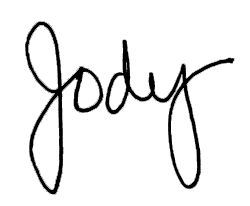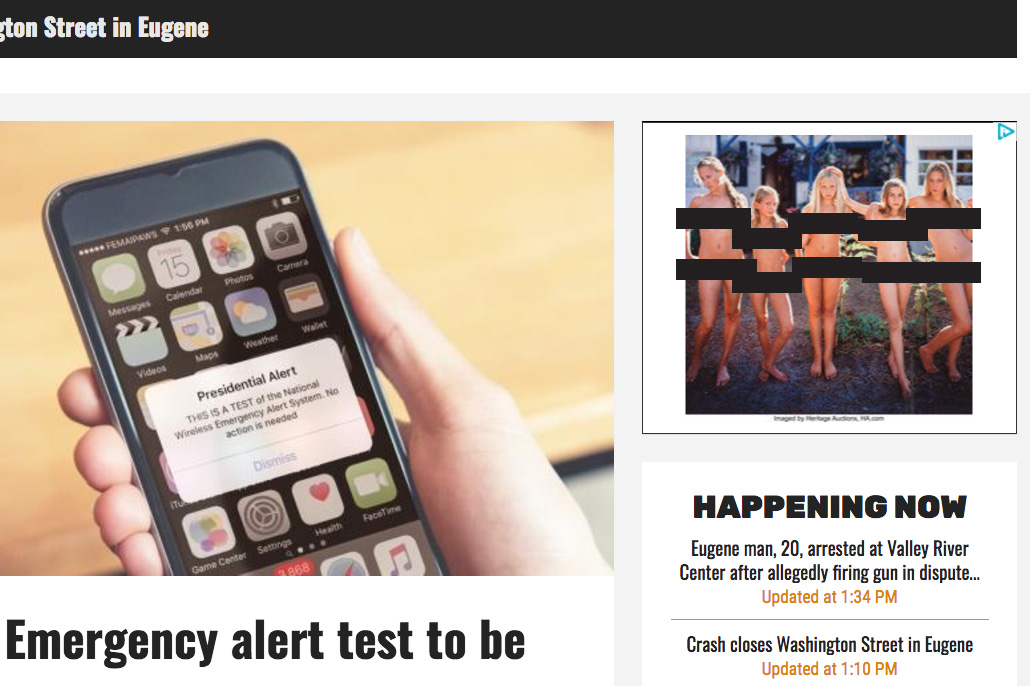Like many newspapers in recent years, The Register-Guard relies on digital advertising to shore up flagging print ad revenues.
But that often means outsourcing the ad selection to algorithmically driven servers that try to match ads to readers — sometimes successfully and sometimes not.
Monday afternoon, Oct. 1, a full-color, full-frontal nude photograph of five adolescent girls standing in a row appeared for some readers right at the top of the RG‘s home page. This was, let’s say, not the family-friendly newspaper’s usual fare.
Placed there by a service called Criteo, the ad showed a 2007 photo by controversial art photographer Jock Sturges. It was being auctioned, according to the ad, by Heritage Auctions, with an opening bid of $500 and an estimated value of $1,000 to $2,000. (Click here to see the auction listing with the full photo reproduced, though only if you promise you’re over 18 and you’re looking solely for artistic reasons.)
Sturges has drawn numerous legal threats for his work. His San Francisco studio was raided by the FBI in 1990, though a grand jury refused to indict him. In 1998 the states of Arkansas and Louisiana tried unsuccessfully to have his work deemed child pornography.
His photos of children appear on the covers of several books, including Norwegian author Karl Ove Knausgård’s first novel, Ute av verden.
We’ve reached out to RG editor Alison Bath and publisher Shanna Cannon for comment but did not get an immediate response. We’ll update when we hear anything.
Update 10 am Oct. 2: RG Publisher Shanna Cannon says by phone this morning that the ad for the Sturges photo wasn’t served up by the newspaper’s ad network. “That did not run on our site yesterday,” she insists, and suggests the problem could have originated with a computer virus on EW‘s computers. Despite the content of the photo, the fact that the ad comes from a well established auction house weighs against malware. We’re checking.
Update 4:30 pm Oct. 2: Publisher Cannon told EW in a telephone call that she had reported the offending ad to the FBI and to Eugene police. Meanwhile, EW‘s tech guy says our system hasn’t been compromised by malware of any kind.
Update Oct. 7: In an editorial this morning, The Register-Guard has apologized to readers and is now taking responsibility for allowing the ad to run, as opposed to blaming EW for having a computer virus.
This odd incident shines a bright light on one of the darker truths of digital advertising: Once you outsource ad placement to Google and the lesser-known firms like Criteo, you’ve given up control of what runs on your pages.
A Note From the Publisher

Dear Readers,
The last two years have been some of the hardest in Eugene Weekly’s 43 years. There were moments when keeping the paper alive felt uncertain. And yet, here we are — still publishing, still investigating, still showing up every week.
That’s because of you!
Not just because of financial support (though that matters enormously), but because of the emails, notes, conversations, encouragement and ideas you shared along the way. You reminded us why this paper exists and who it’s for.
Listening to readers has always been at the heart of Eugene Weekly. This year, that meant launching our popular weekly Activist Alert column, after many of you told us there was no single, reliable place to find information about rallies, meetings and ways to get involved. You asked. We responded.
We’ve also continued to deepen the coverage that sets Eugene Weekly apart, including our in-depth reporting on local real estate development through Bricks & Mortar — digging into what’s being built, who’s behind it and how those decisions shape our community.
And, of course, we’ve continued to bring you the stories and features many of you depend on: investigations and local government reporting, arts and culture coverage, sudoku and crossword puzzles, Savage Love, and our extensive community events calendar. We feature award-winning stories by University of Oregon student reporters getting real world journalism experience. All free. In print and online.
None of this happens by accident. It happens because readers step up and say: this matters.
As we head into a new year, please consider supporting Eugene Weekly if you’re able. Every dollar helps keep us digging, questioning, celebrating — and yes, occasionally annoying exactly the right people. We consider that a public service.
Thank you for standing with us!

Publisher
Eugene Weekly
P.S. If you’d like to talk about supporting EW, I’d love to hear from you!
jody@eugeneweekly.com
(541) 484-0519
